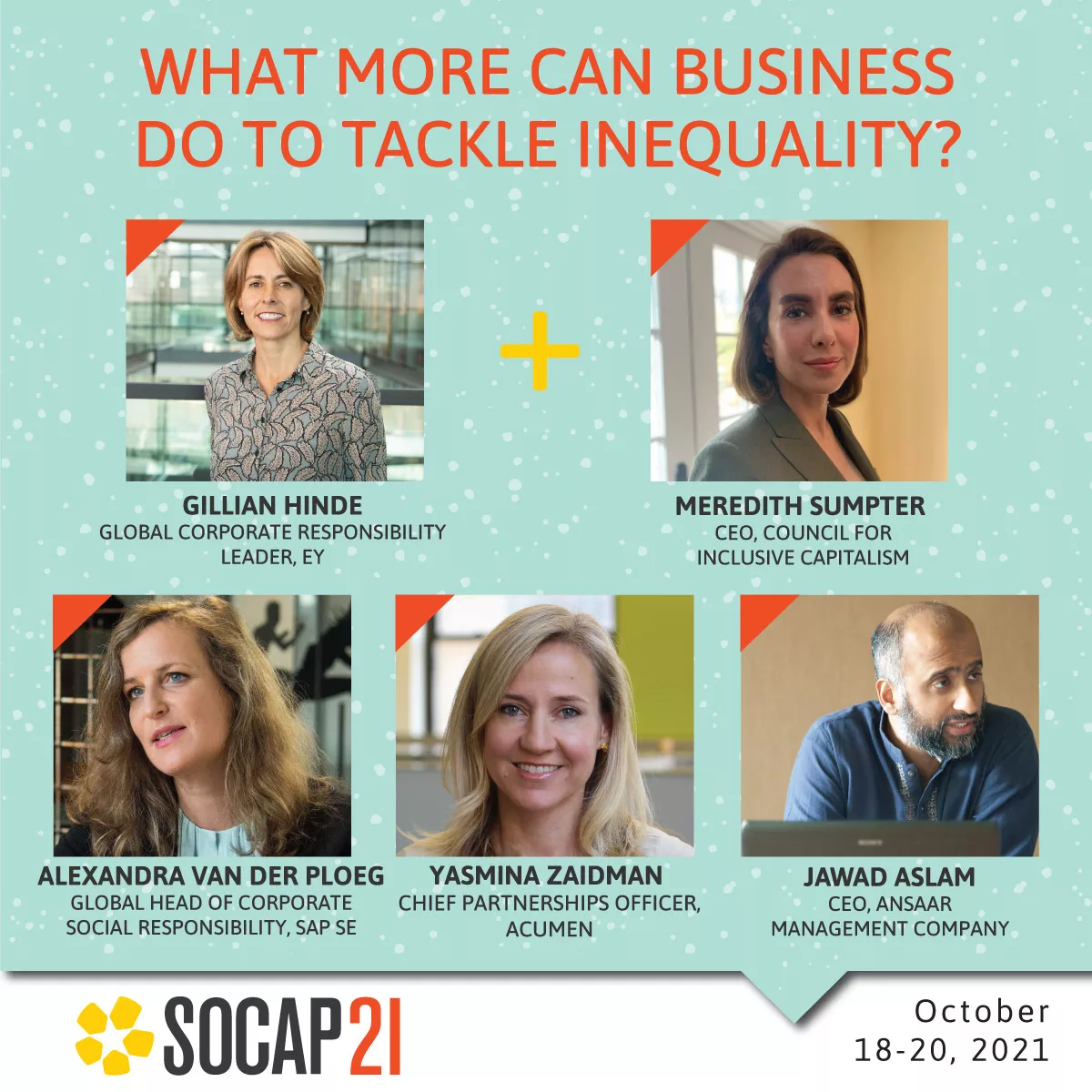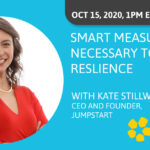A SOCAP21 Conversation Takes Critical Look at Capitalism, Market Forces, and Extending Economic Prosperity to Everyone
Capitalism is rightly recognized for lifting billions of people out of poverty, yet it has also perpetuated the systems that have left so many with so little, and so few with so much. We’ve been persuaded that markets are self-regulating and that it is acceptable to allocate risk and reward inequitably.
But market forces are not invisible hands—they are our hands, and collectively we hold the power to extend the benefits and opportunities of economic prosperity to everyone. To achieve this will require ongoing commitment and fundamental change, from all stakeholders.
“This is not CSR, this is not about philanthropy. This is about business leaders rethinking how they do business, so as they make profit that are benefitting people and the planet,” said Meredith Sumpter, CEO of the Council for Inclusive Capitalism, in a SOCAP21 session focused on business’s role in reducing inequality and developing a stakeholder economy.
“Systems change really starts with the individual actions that companies are taking. it starts with our agency as business and public sector leaders,” she said. “… In that, we need to keep focusing on progress, not perfection.”
Investors and public markets have a role to play as well, as business leaders only have as much capability to explore more stakeholder-focused models as their boards, shareholders, and the shareholder primacy rules that govern traditional corporations allow.
“The way markets are valuing companies that put ESG at the core of their companies— we’re still at the early stages of that, but it’s beginning to be recognized. This work is beginning to create stronger and more dynamic companies and economies, while creating shareholder value,” said Yasmina Zaidman, Chief Partnerships Officer at Acument.
“We’re seeing that now, as markets are valuing more the companies taking climate seriously. … Increasingly, you will see markets reward those companies that incorporate inclusion into their business practices, seeing it as a tool for stronger and more dynamic companies and stronger and more dynamic societies that we are all striving for,” she said.
In this intimate Kitchen Table conversation hosted by EY at SOCAP21, business leaders whose organizations span multiple sectors and geographies, and range in size from early stage to Fortune 500, came together to discuss the role of business in tackling social inequality and building a stakeholder economy.
They each shared their first-hand experience of creating a more systemic focus on serving the needs of low-income and marginalized communities in practice, the challenges they’ve faced and how they’ve overcome them—individually and collectively. And, together, they set out what more business can do to tackle social inequality.
Watch What More Can Business Do to Tackle Social Inequality?
Panelists:
Gillian Hinde: Global Corporate Responsibility Leader at EY
Meredith Sumpter: CEO at COUNCIL FOR INCLUSIVE CAPITALISM
Jawad Aslam: CEO at ANSAAR MANAGEMENT COMPANY
Alexandra van der Ploeg: Head of Corporate Social Responsibility at SAP SE
Yasmina Zaidman: Chief Partnerships Officer at ACUMEN





